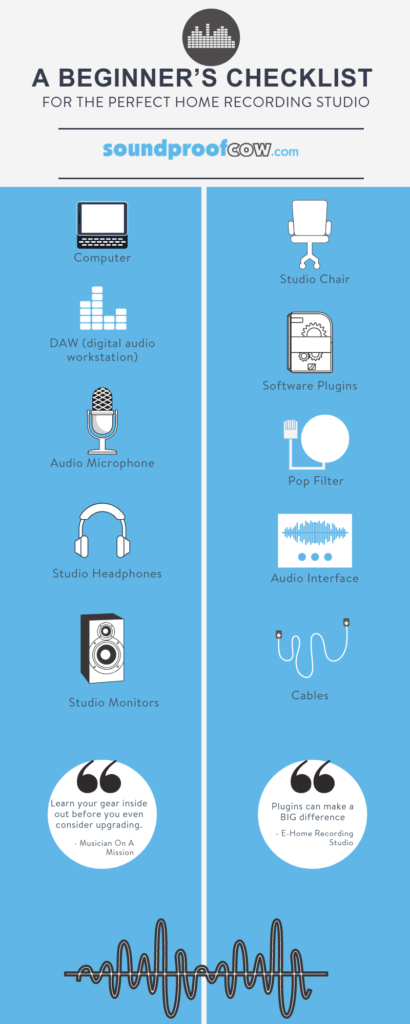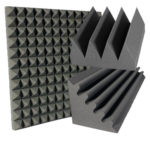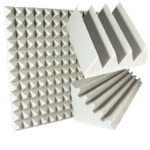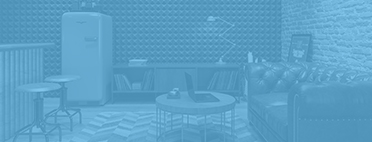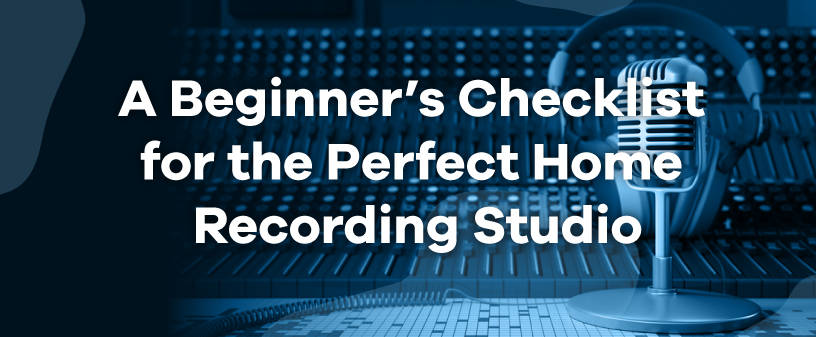
A decade or two ago, the idea of creating your own home recording studio might have seemed prohibitively expensive. In this hi-tech computer age, though, just about everything is possible — even the ability to make a home studio of your very own without breaking the bank. In fact, with just nine basic items, you can get started on your quest to make a home studio.
What Do I Need for a Home Studio?
Here’s what you need to build a basic recording studio at home:
1. A Computer
This equipment is essential. The affordability of the home computer is what makes an inexpensive home recording studio possible. Of course, it’s still an expense, so if you already have a computer that will work, you may just want to start with the one you have. Because faster is better, give that computer a good system check and get rid of anything you don’t need that might be slowing it down.
2. Audio Interface (split and expanded)
You’ll use the audio interface to connect the computer to what you’re actually using to make the music. An audio interface is a USB device that bridges instruments or microphones and your computer. This equipment features microphone preamps that bring mic and instrument level signals up to line level. Using an audio interface allows you to record a clear, strong signal to your computer.
3. Digital Audio Workstation
The Digital Audio Workstation (DAW) is the reason for the computer. It’s the software you’ll use to record, mix and edit your music. Your DAW will give you a bird’s eye view of your entire song track by track. There are various DAWs on the market. While some are free and minimalistic, others are more expensive but come loaded with premium tools for editing sound.
4. Microphones
A microphone is crucial if you plan to record vocals, capture sounds from your instrument amplifier or convert an acoustic sound into a digital audio file. Once your capabilities become more advanced, you’ll have a wide range of microphones for recording different kinds of music, some for vocals, some for drums, etc.
To start with, though, just one or two quality dynamic mics should do you fine.
5. Pop Filter
Make the vocal mixing process easier by capturing clean takes with little interference. Some of the trickiest aspects of the voice to mix around are plosives, such as the aggressive sound from pouncing words with the letters p or b. A pop filter is a device that you place between your mouth and the microphone to soften plosives.
6. Headphones
Headphones are crucial when recording and mixing music. During the recording process, you’ll need headphones to listen to the backing track and metronome without allowing them to bleed into the recording. Closed-back headphones isolate sound and preserve the recording quality. Good headphones are also necessary during the mixing process as they help you notice fine details — especially when mixing in stereo.
7. Speakers
Speakers are critical when mixing because they provide the most accurate representation of the sound. Pick up some professional studio monitors rather than traditional commercial speakers, as they will give you a more honest sound for mixing purposes.
8. MIDI Controller
You can use a Musical Instrument Digital Interface (MIDI) controller to replicate virtually any instrument or sound effect. A MIDI controller sends digital information that the DAW can interpret as a note or chord. You can download plugins for synthesizers, pianos, drum kids, orchestral instruments and more, then control them from your MIDI device. The standard MIDI controller looks and plays just like a piano keyboard.
9. Home Recording Studio Soundproofing
Your home recording space is likely to have plenty of noise obstacles that interfere with your recording quality. You can limit noise interference with products that block or absorb sound. Reducing echoes inside your recording room is one of the most important first steps, so install acoustic panels or place soundproofing foam on the walls to prevent sound from bouncing off hard, flat surfaces.
Learn More About Soundproofing Your Home Studio
With these nine items — and whatever cables and accessories you need to make them work — and your instruments, you’ll be ready to build a beginner recording studio and bring your ideas to life at home.
As you spend more time recording and mixing, you’ll realize how much you can benefit from reducing excess noise in your studio space. Soundproofing your home studio will help you make the most of your recording gear by limiting noise interference while recording and listening back to each track with maximum clarity.
The Soundproof Cow is here to help you perfect your home recording studio, so request a free acoustic analysis to see how we can optimize the space.



